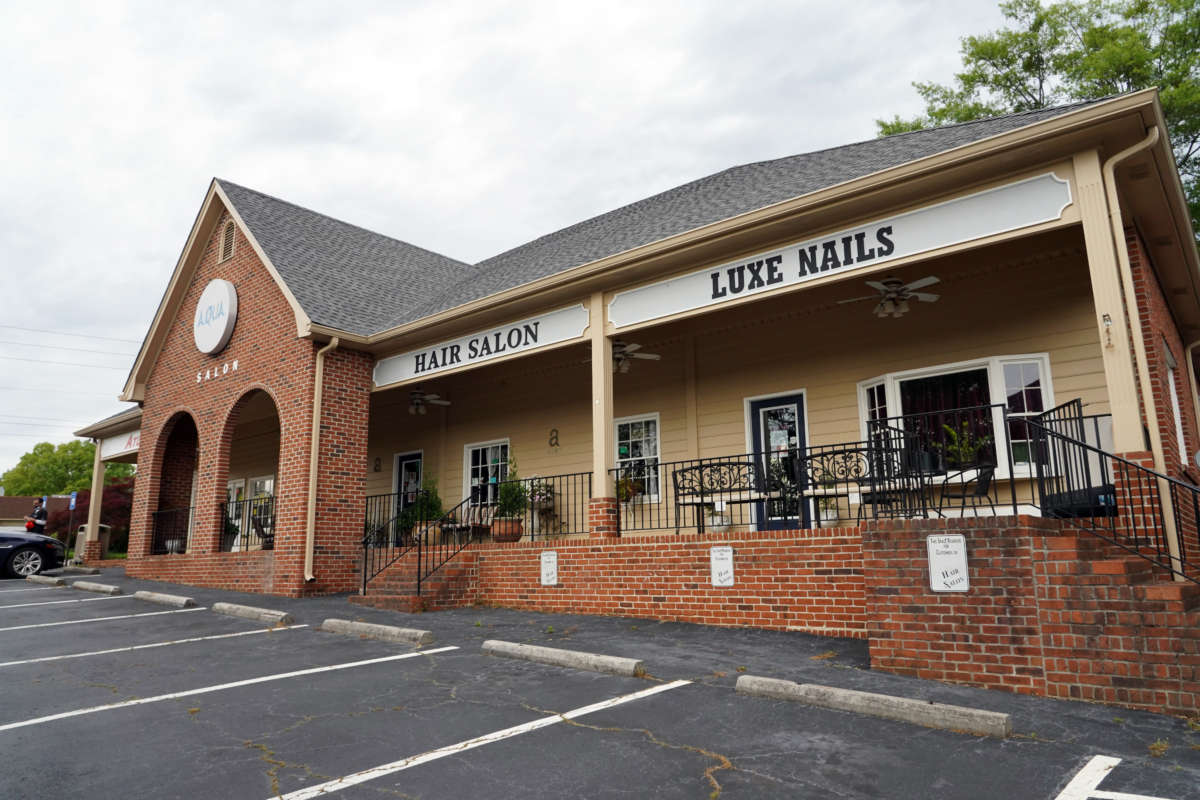In the rural South, the COVID-19 pandemic is becoming a silent disaster.
As rural residents commute to jobs in cities and transportation hubs, they’re being exposed to the virus and bringing it home to a population already at risk.
Chronic diseases that can lead to more severe COVID-19 symptoms are common across the rural South. The population is older and poorer than much of the country, and the health care system has been deteriorating for years as hospitals lose staff and close.
Despite the population’s vulnerability, Southern states have been a stronghold of resistance to federal and international recommendations around COVID-19 protective measures. Most of the states’ delays and refusals to enact “shelter-at-home” policies were tied to economic arguments.
Now, governors are using the same economic reasons for loosening those restrictions. Georgia Gov. Brian Kemp called for reopening several types of businesses including hair salons starting Friday and restaurants and even theaters starting Monday, despite concerns from public health officials. Mississippi is also considering lifting its shelter-at-home orders for economic reasons. When that happens, service workers, once partially protected from exposure, will find themselves at greater risk.
As University of Mississippi sociologists who work with rural communities on a range of resilience issues, especially health, we are concerned about the economic and health consequences of returning to business before the region is prepared to protect its residents.
Rural Commuters on the Urban Front Lines
Rural areas may seem isolated from the coronavirus threat, but in the South, one in 12 rural residents commutes to an urban hub for work. Many of those jobs are on the front lines of health care and service industries, where exposure to other people is hard to avoid.
In much of the South, “shelter-at-home” orders have had loose interpretations of “essential personnel” who are exempted from the order. They include employees in high-exposure jobs – cashiers, fast food workers and registered nurses, all among the largest employment areas for Southern states. Many of these workers are less likely to have sick leave or be able to work from home. And they are paid lower wages, so many still go to work even when they’re sick.
These workers have been saved some exposure while restaurants shifted to drive-through operations and social distancing was encouraged. However, if other Southern states follow Georgia’s lead and begin lifting their current protections, workers’ chances of being exposed to someone infectious with the coronavirus rise.
Mississippi’s rural infection numbers stand out in particular: 62% of the state’s coronavirus cases as of mid-April were in rural counties, and the state had counted more than 200 deaths. Rural infection rates were higher than in urban areas: 181 cases per 100,000 people compared to 128 in urban counties. The South as a whole had more urban cases, but still a high rural infection rate.
The South Isn’t Prepared for a COVID-19 surge
Southern states are already scrambling to manage both detection of coronavirus cases and treatment of the disease. Their testing capacity, essential to controlling the pandemic, has been increasing but remains sporadic and well below the national average. Access to care is increasingly difficult.
Mississippi has just over 400 ICU beds in its largest hospital service area, Jackson. Currently, 100 of those are occupied. Conservative estimates predict that needs for rural ICU beds will double to more than 800 in the next six months under moderate coronavirus infection projections.
Ventilators are an even bigger concern. University of Mississippi Medical Center has only about 125 to 150 ventilators in its facilities, and officials estimate 40% to half are in use on any given day.
The rural South’s health profile adds to the risk. The region has higher rates of chronic medical conditions that have been found to significantly increase the likelihood that a person infected with the coronavirus will develop severe COVID-19. Among the first 159 people to die from COVID-19 in Mississippi, over half had cardiovascular disease, over 40% had diabetes or high blood pressure, and one-third were obese.
Much of the care for these patients is being delivered through a shrinking rural health care system. Of the 128 rural hospital closures across the country in the last 10 years, over half were in the South. The pandemic has created more financial troubles for rural hospitals as nonessential procedures have been postponed. Every county in Mississippi is considered underserved, meaning residents don’t have enough doctors, even if they have access to a health care facility.
Testing and Investing in Health Care Long-Term
In the short term, Southern states need to increase their testing for coronavirus cases. Per capita, the South administered about 20% fewer tests. Many southern states currently rely on pop-up testing at sites temporarily opened in locations where other facilities are not available. Permanent, well-stocked testing centers would help residents know where to go.
In the long-term, these states need to invest in their rural health infrastructure.
Rural hospitals and pharmacies are essential to reducing long-term risk among rural Southerners, particularly those with chronic health conditions. They are also important “economic anchors” for their communities. According to the American Hospital Association statistics, every dollar spent by a hospital supports US$2.30 of additional business activity within the community and hospitals are a top source of private sector jobs.
4 Days Left: All gifts to Truthout now matched!
From now until the end of the year, all donations to Truthout will be matched dollar for dollar up to $44,000! Thanks to a generous supporter, your one-time gift today will be matched immediately. As well, your monthly donation will be matched for the whole first year, doubling your impact.
We have just 4 days left to raise $44,000 and receive the full match.
This matching gift comes at a critical time. As Trump attempts to silence dissenting voices and oppositional nonprofits, reader support is our best defense against the right-wing agenda.
Help Truthout confront Trump’s fascism in 2026, and have your donation matched now!
